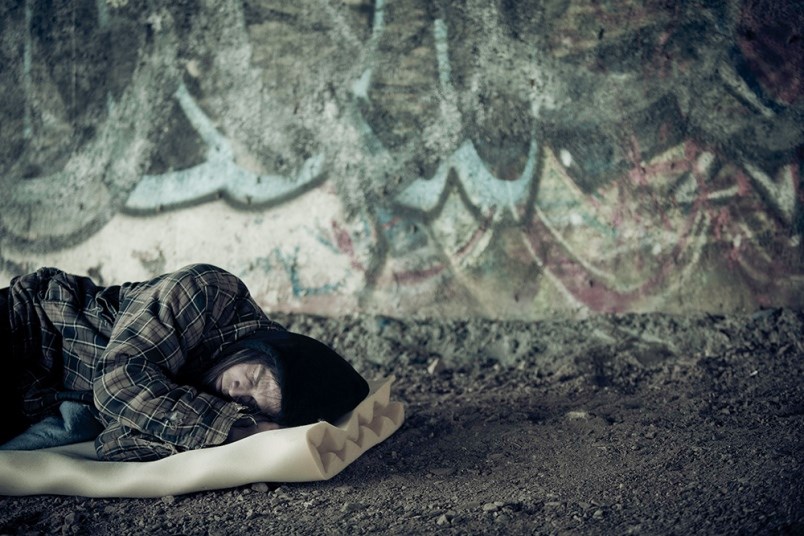What’s happening?
The City of New Westminster is proclaiming Oct. 10 to 16 as Homelessness Action Week.
How has COVID impacted homelessness?
The city’s proclamation states that COVID-19 has had an “enormous impact” on those who are homeless and has emphasized the need for more housing supports and a variety of interconnected supports services. In addition, the pandemic has also placed many more people in the community at risk of homelessness because of its financial impacts.
How can I help?
The New Westminster Homelessness Coalition and its member agencies have been supporting the city’s COVID food response since the beginning of the pandemic. Several food and resource hubs were created in neighbourhoods throughout the city.
As part of Homelessness Action Week, and in recognition of World Food Day on Oct. 16, community members are encouraged to participate in a local food drive and contribute items to the food hubs.
“Unfortunately, our numbers seem to be going up each week and there doesn't seem to be any relief in sight at the hubs,” homelessness coalition coordinator Betina Wheeler said in an email to the Record. “This past Saturday, the Don't Go Hungry program alone saw the highest numbers they have ever seen – 170 households (72 were families). To put this in perspective, the average up until the end of August always sat in the 130s. There is a real need to get quality food into the hubs, and to some of the food programs, as everyone is relying on donations now for funding and food so we are going to do another food drive as part of HAW.”
What food items are needed?
Whole grain foods like oatmeal, high-fibre cereals; quinoa, couscous or barley; pasta and rice; meat (canned tuna, salmon, chicken or turkey); beans/nuts (canned and dried beans or lentils, nut butters, unsalted nuts); hearty soups and chilis; canned fruit and vegetables (free of added sugar or sodium is preferred) and healthy school snacks. People are asked not to donate expired foods as they can’t be used and the hubs have to cover the cost of disposing of those items.
Do the hubs need anything else?
Baby supplies (food, formula, diapers and wipes); hygiene items (toothbrushes, toothpaste, floss, soap, shampoo, feminine hygiene products, Depends); and pet foods are needed. Gift cards are also appreciated – Walmart and grocery store gift cards can be used to purchase speciality items that aren’t available (such as those meeting dietary, religious or cultural needs) and gas cards can support food delivery efforts.
Where can I donate?
Donations can be dropped off at: the St. Aidan’s food hub at 1320 Seventh Ave. on Saturday, Oct. 16 from 9 to 10 a.m. (or call 604-836-8400); the St. Barnabas food hub at 1010 Fifth Ave. on Wednesday, Oct. 13 from 11 a.m. to noon (or call 604-526-6646); the Holy Trinity food hub at 514 Carnarvon St. on Wednesday, Oct. 13 from 8:30 to 10:30 a.m. (or email [email protected]).
Other organizations welcoming food donations include Aunt Leah’s (for youth) – 604-525-1204 and the Lower Mainland Purpose Society – Ashely at 604-526-2522.
More info?
Contact Betina Wheeler at [email protected].
How many people are homeless in New West?
A March 2020 count enumerated 41 unsheltered and 82 sheltered homeless people in New Westminster, but officials believe it’s likely an undercount of the true extent of the unsheltered homeless population because it misses youth and individuals who are couch surfing or living temporarily with family and friends.
What’s the City of New Westminster doing to address homelessness?
City staff are working on a new homelessness strategy, with the assistance of the New Westminster Homelessness Coalition Society, the Community Action Network and the UBC School of Community and Regional Planning.
The new strategy, and the needs assessment that it’s based on, will: identify needs and gaps and inform action interventions; assist the city and the faith-based and non-profit sector in the applying for grants from foundations and senior levels of government; facilitate collaboration and partnership building; and prioritize actions and inform advocacy, including with the senior levels of government.
When will the strategy be finished?
Phase 1 of the plan (information gathering) is being done from October to December 2021 and Phase 2 (development of the strategy) is running from January to March 2022. Phase 3 (monitoring and evaluation) is targeted to take place from April 2022 onwards.
Follow Theresa McManus on Twitter @TheresaMcManus
Email [email protected]



